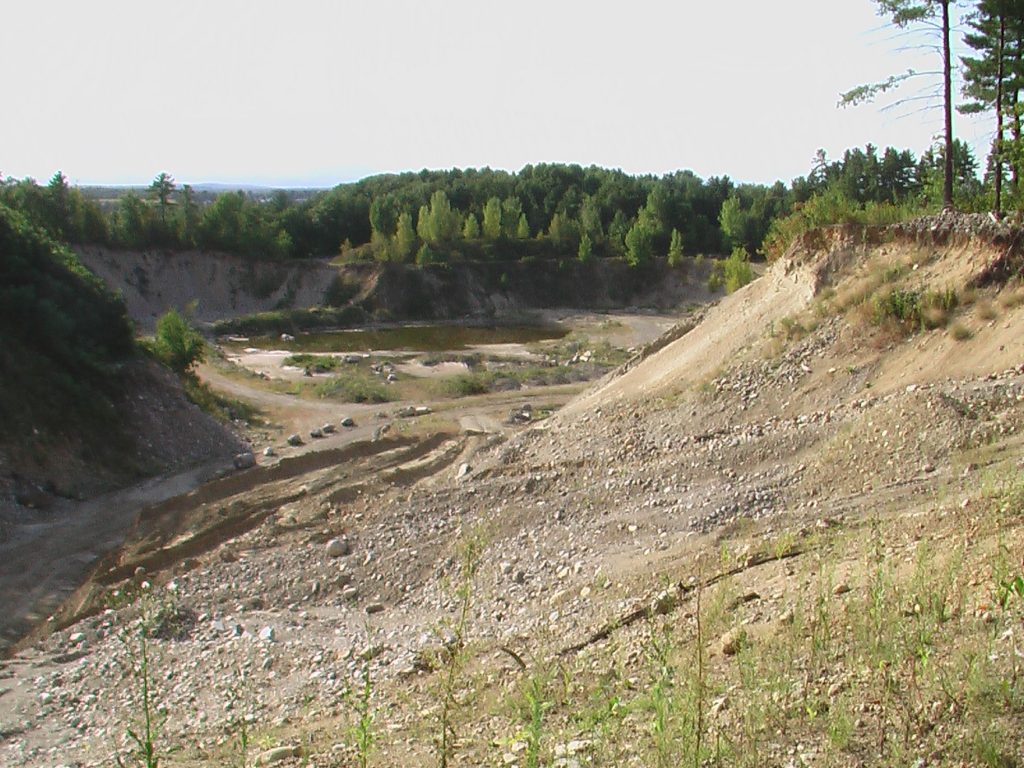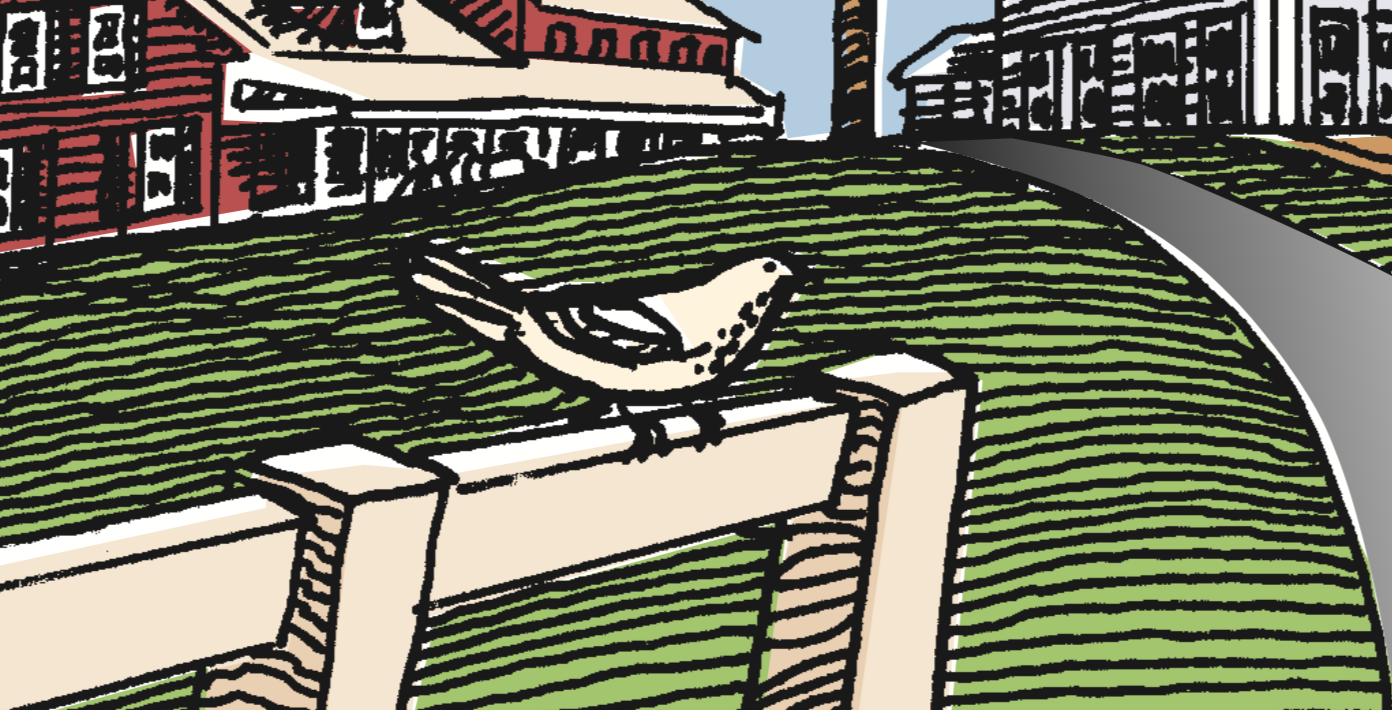Community overview
East Middlebury, VT is a village located four miles to the southeast of Middlebury’s downtown and the college. It is part of the 39 square-mile Town of Middlebury with a population of 8,496 according to the 2010 Census. The Village of East Middlebury is a distinct, historic settlement centered on Route 125. According to the 2007 Middlebury Town Plan, “East Middlebury residents want to preserve the small, human scale of their historic, residential village. There is strong sentiment against development or changes that would diminish these elements.”
Tools you can use
An application for an expanded gravel pit could feel like a threat to residents in this small village. However, by utilizing an alternative dispute resolution (ADR) process to overcome their differences, a community and a developer created solutions, rather than becoming enemies.

JP Carrara & Sons (JPCS) owned and operated a gravel pit that they planned to expand to nearby sites. Prior to JPCS proposing this expansion, community members had no formal opportunity to voice their concerns about the operation of the pit. The gravel pit, which existed before zoning was introduced in East Middlebury, was grandfathered by the town’s zoning ordinances. Because it did not require permits, residents had no opportunity to voice their concerns about potential impacts of new or expanded gravel operations. Because the pit was situated next to the elementary school playground and near a residential neighborhood, the East Middlebury community had concerns about potential health and safety ramifications of increased use of the pit. In response, community members banded together and formed what they called the “Pit Crew.”
Instead of a protracted legal battle at local and state hearings, ADR was utilized to overcome the conflict between JPCS and the East Middlebury community. The first step in the process was to find a neutral third-party to mediate. By acting in this capacity, Vermonters for a Cleaner Environment (VCE) engaged JPCS before they spent time and money on developing and submitting a permit application. Since nearly all success in resolving land use disputes comes before filing the application, VCE’s timing was crucial to a successful outcome.
VCE convened the ADR process by contacting JPCS on the community’s behalf. This allowed for honest, open communication and an earnest collaborative commitment to reaching a consensus. For example, before collaborating, JPCS hired experts to produce reports that supported their permit application. The “Pit Crew” doubted the accuracy of the reports. At VCE’s suggestion, the opponents chose an expert together.
Once they began communicating honestly and openly, JPCS listened to the Pit Crew’s concerns about air and noise pollution as well as safety concerns over the lack of sidewalks. They were surprised at many of the issues raised and the level of concern in the community. The ADR process facilitated a solution that satisfied everybody while minimizing costs in terms of time, money, and community relationships
Lessons Learned
Through the ADR process, all sides learned the importance and benefits of collaborating to reach a satisfactory solution. JPCS evolved from being completely ignorant of the community’s concerns to hosting an open house for the community stakeholders. The Pit Crew expressed satisfaction with the process and the outcome, while JPCS saved time and money and built stronger community relationships. Interviews with all parties indicated that everybody involved now trusts and respects each other.
Instead of hiring lawyers to resolve disputes like this, local community members, VCE and JPCS convened an ADR process that took all stakeholder interests into consideration. Had JPCS ignored the community and gone through with their plans based on potentially-biased expert reports, the dispute would most likely have ended up in court, costing all stakeholders time, money, and relationships. Had the Pit Crew not met with JPCS, the community would likely still have dirty air, dangerous street crossings, and a neighbor they distrusted. JPCS learned that working to satisfy interested persons is an effective means of achieving their goals. The importance of communication and trust are at the heart of this project’s success.
Some lessons learned from the East Middlebury case include:
- Engage early before permitting has been submitted. By contacting the various stakeholders before JPCS spent money on hiring experts and preparing a permit application, a successful outcome was more easily facilitated.
- Select experts together. By collaborating, the parties avoided the all-too-common “battle of the experts” that can result from adversarial relationships between a developer and a community. Without unbiased experts and resources, community stakeholders can rarely succeed in refuting erroneous expert data. Had JPCS committed significant funds to hiring experts and preparing a permit application, they would have been less likely to agree to a collaborative process and paying for third-party expertise. Moreover, communities often lack the funds necessary to hire their own experts to dispute the developers’ experts.
- View developers and community advocates as partners not adversaries. Developers are working to provide economic opportunities for a community while residents want to ensure quality of life issues are addressed. Both are working together to bring stronger solutions and opportunities to a community. In East Middlebury, everyone benefited from the collaborative process. At the conclusion of the permit application process, all stakeholders were satisfied with the dispute resolution process and its results.
- A trusted neutral facilitator is key. In order for the ADR process to promote trust and cooperation, a neutral facilitator can keep everybody honest with one another. Because of this honesty and openness, JPCS not only has a new gravel pit, but is a respected community member.
JPCS is now involved in East Middlebury’s community for the first time in decades. While the ADR process occurred due to the community’s concerns over JPCS’s gravel pit plans, the community came to eventually support JPCS’s application. This represents a complete reversal from their initial position. In fact, JPCS eventually acknowledged they would repeat this process regardless of whether JPCS received the permit. JPCS learned the value of positive community relations.
Related Issues
Related Tools




